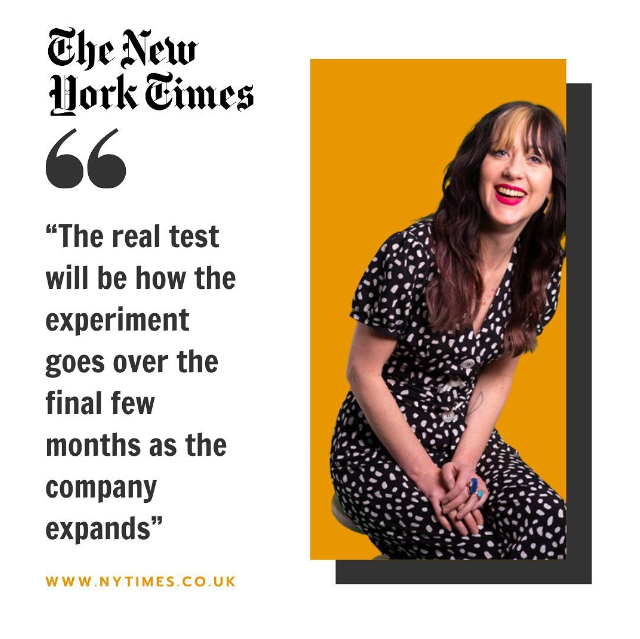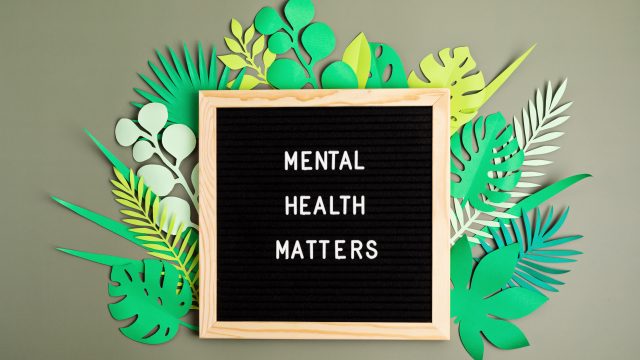World Mental Health Day: An Update on Amplitude’s Mental Health Pledge
In May, our Senior Creative and mental health advocate Emma took a look at Amplitude’s attitude to mental health for Mental Health Awareness Week (you can read her piece here). We’re now in October (how time flies!) and find ourselves reflecting on our efforts to create a more mental health inclusive workplace this World Mental Health Day.
Five months have passed since Emma took out her magnifying glass and turned it towards our company life to see what we’re doing well (or not so well) when it comes to mental health. Whilst mental health is a huge part of our culture, both in terms of engaging in vital, open conversations and offering personal emotional support, we realised that there was a lot more we could do. After all, we’ve never been an organisation that is “all talk and no action”…
So what are we doing about it?
Legally, there is not a lot required from a company when it comes to looking after its staff’s mental health. Between lofty, vague policies and unfair parameters to determine a person’s struggle, we realised that the bare minimum simply wasn’t good enough. Our talented, passionate team are the lifeblood of this agency and they deserve to not only feel supported, but be protected legally.
This need to look after our team in ALL areas (not just from a mental health standpoint) has resulted in us overhauling and evaluating all of our policies to ensure we can support our staff when it matters. Alongside our Stress Policy, we now have a Flexible Working Policy, Maternity & Family Friendly Policy and Menopause Policy as well as a dedicated Wellbeing Policy (we don’t like to do things by halves).
But we are creatives, not mental health professionals, so we researched what else we could do and what further support was available for businesses.
What support is out there for businesses?
On 28th September this year, the World Health Organisation released their recommendations for supporting mental health in the workplace. They estimated that, at any one time, 15% of working-age adults have a mental health disorder, and that for 41% of employees who experienced poor mental health in 2020, work was a contributing factor. These guidelines help to:
- Prevent mental ill-health by changing culture and work environments to be less harmful
- Protect staff and promote awareness by providing training that helps to identify early warning signs
- Support workers who already have a mental illness to help them thrive
Alongside these recommendations, the Mental Health At Work Commitment aims to support businesses to look after their employees’ mental health through a simple framework based on the Thriving At Work standards. These are great initiatives, and standards we’ll strive to achieve going forward.
We’ve also supported Emma to become a Mental Health First Aider. On completing her course she will be a recognised touchpoint for anyone that finds themselves struggling, and will have the resources to be able to support them effectively. The chance to encourage Emma’s personal development in a subject to which she is dedicated is brilliant, but the fact that it will also benefit our company and staff makes it a no-brainer.
Oh, and let’s not forget our 4 Day Work Week!
In case you haven’t heard (we’ve been fairly quiet about it), Amplitude is part of the 4 Day Work Week UK trial, and a huge part of that is centred around mental health and wellbeing.
It is estimated that mental health issues cost the UK economy £118 billion each year, and although working fewer hours might seem hugely counterintuitive, with fewer hours to complete the same amount of work, we can assure you the results we’ve seen have been the exact opposite.
Working fewer hours but producing the same amount of work forced us to tighten up our processes and work smarter, not harder, and this has meant we get an extra day in the week all to ourselves completely guilt free. We have staff members taking up new hobbies, catching up on household admin, spending time in nature and running errands that they would otherwise have spent their weekend fulfilling. All of these factors have improved the mental health of our team by allowing them to relax and spend time doing things they enjoy. Our creatives come into work more bright-eyed and bushy-tailed than ever, all without sacrificing their productivity (if anything, it’s even improved!)

What’s next?
We’re proud to have a culture that encourages our staff to tell us ways they feel we could improve as a business. Taking a look at how we manage the mental health of our team has in turn encouraged us to take positive steps towards a healthier working environment for all.
We’ll continue to evaluate our practices and find better ways to support our staff in the future. Has your business implemented its own mental health initiatives? What have you found has worked for you? We’d love to hear from you and learn from your experiences.



